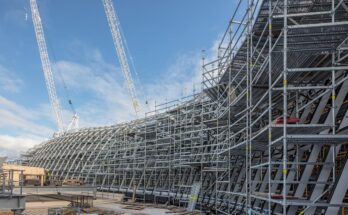In the bustling landscape of Pakistan’s rapidly growing infrastructure, civil engineering professionals play a pivotal role in shaping the nation’s future. With urbanization and development on the rise, the demand for skilled civil engineers in Pakistan is soaring. This article delves into the world of civil engineering jobs in Pakistan, exploring the career opportunities, qualifications, and prospects in this dynamic field.
Key Factors Shaping Civil Engineering Jobs in Pakistan
- Infrastructure Development: Pakistan is investing heavily in its infrastructure, including roads, bridges, buildings, and energy projects. This surge in construction activities creates a high demand for civil engineering expertise.
- Urbanization: As more people migrate to urban areas, the need for well-designed and sustainable infrastructure becomes paramount. Civil engineers contribute to the development of smart cities and urban planning.
- Energy and Power Projects: Pakistan’s energy sector is expanding, with projects like dams and power plants requiring civil engineering skills for design, construction, and maintenance.
- Transportation Networks: With the China-Pakistan Economic Corridor (CPEC) and other transportation initiatives, civil engineers are essential for the development of efficient road and rail networks.
Career Paths in Civil Engineering
- Structural Engineer: These engineers design and analyze structures to ensure they can withstand natural forces and loads. They are crucial for safe and durable buildings, bridges, and other infrastructure.
- Transportation Engineer: These professionals focus on designing and planning transportation systems, including roads, highways, airports, and public transit systems.
- Geotechnical Engineer: Geotechnical engineers assess soil and rock conditions to provide recommendations for construction projects. They play a critical role in ensuring stability and preventing foundation failures.
- Water Resources Engineer: Water is a valuable resource, and these engineers manage its sustainable use by designing systems for water supply, flood control, and wastewater treatment.
- Construction Manager: While not exclusively engineering, construction managers ensure that projects are completed on time and within budget. Their role involves coordination, budgeting, and site management.
Qualifications and Education
To embark on a successful civil engineering career in Pakistan, individuals should pursue the following educational path:
- Bachelor’s Degree: A bachelor’s degree in civil engineering or a related field is the foundational step. Several universities across Pakistan offer accredited engineering programs.
- Professional Certification: Graduates can register as professional engineers with the Pakistan Engineering Council (PEC). This certification enhances job prospects and demonstrates expertise.
Conclusion
Civil engineering jobs in Pakistan offer an exciting array of opportunities as the nation continues to grow and modernize. Whether it’s designing iconic structures, developing sustainable cities, or ensuring safe transportation networks, civil engineers play a vital role in shaping the future of the country. Aspiring engineers should pursue relevant education and certification to capitalize on the booming demand for their skills in Pakistan’s dynamic job market.



